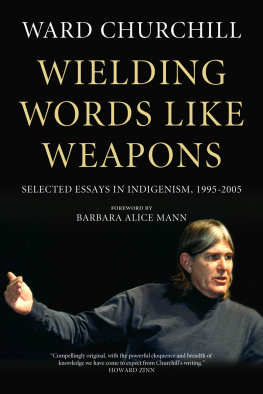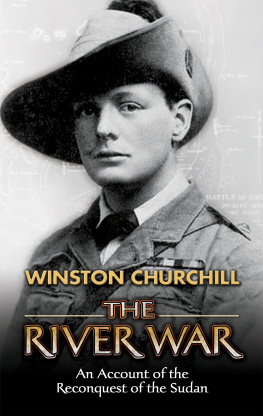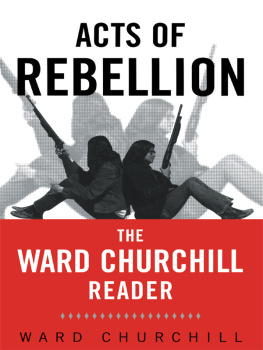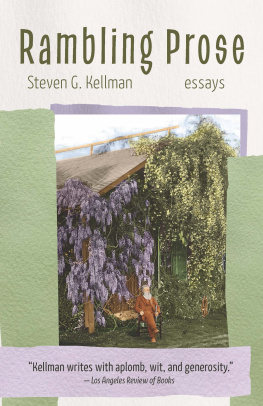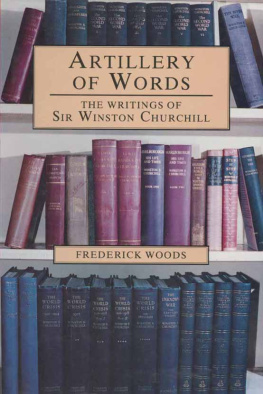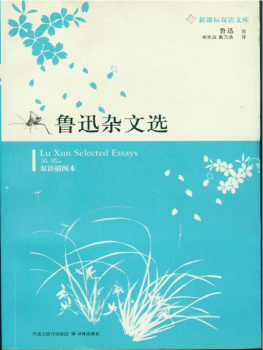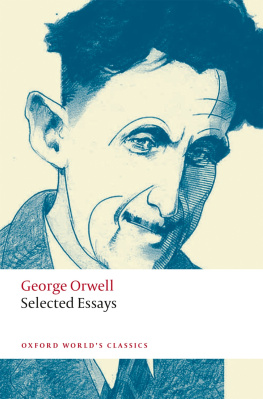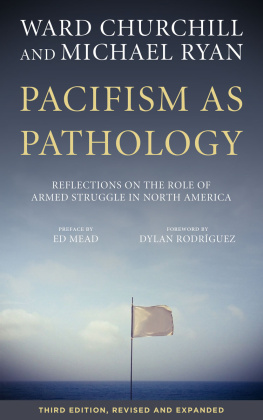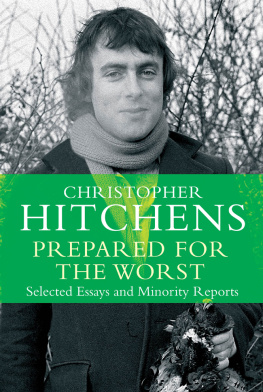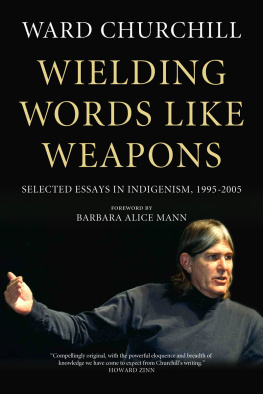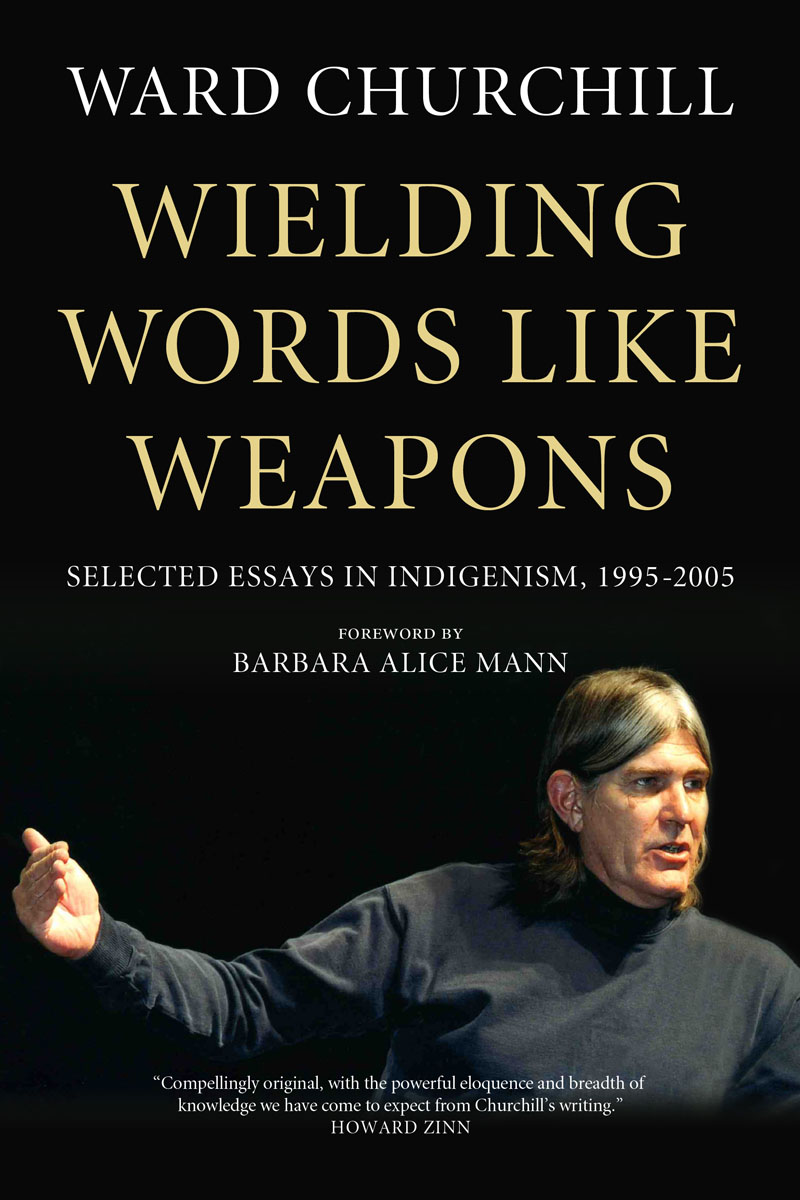
An important contribution that merits careful reflection, and an implicit call to action that should not be ignored.
Noam Chomsky
Compellingly original, with the powerful eloquence and breadth of knowledge we have come to expect from Churchills writing.
Howard Zinn
This is insurgent intellectual workbreaking new ground, forging new paths, engaging us in critical resistance.
bell hooks
I have often said that if I could hold a pen and write books I would write exactly what Mr. Churchill has written.
Carrie Dann, Western Shoshone elder and resistance leader
One of the most widely read and influential writers in this country who deal with American Indian issues[,] Professor Churchills work frequently challenges established narratives and conventional interpretations of previous and current events. Articulating an Indian perspective, he argues forcefully and bluntly on behalf of the positions he represents.
Marjorie K. McIntosh, Distinguished Professor of History, University of Colorado at Boulder
Ward Churchill is important Noam Chomsky, Emma Goldman important.
Maximum Rock n Roll
Churchill is a fluent and gifted prose stylist.
Marianne Mimi Wesson, author of Chilling Effect
Wielding Words like Weapons: Selected Essays in Indigenism, 19952005
Ward Churchill
2017 Ward Churchill
This edition 2017 PM Press
All rights reserved. No part of this book may be transmitted by any means without permission in writing from the publisher.
ISBN: 9781629631011
Library of Congress Control Number: 2015930882
Cover by John Yates / www.stealworks.com
Interior design by briandesign
10 9 8 7 6 5 4 3 2 1
PM Press
PO Box 23912
Oakland, CA 94623
www.pmpress.org
Printed in the USA by the Employee Owners of Thomson-Shore in Dexter, Michigan.
www.thomsonshore.com
This ones for Russ
I want my words to be as eloquent
As the sound of a rattle snake.
I want my actions to be as direct
As the strike of a rattle snake.
I want results as conclusive
As the bite of the beautiful red and black coral snake.
Jimmie Durham
from Columbus Day
(1983)
Contents
Remembering Bob Thomas
His Influence on the American Indian Liberation Struggle |
Subverting the Law of Nations
American Indian Rights and U.S. Distortions of International Legality |
The United States and the Genocide Convention
A Half-Century of Obfuscation and Obstruction |
Charades, Anyone?
The Indian Claims Commission in Context |
In the Spirit of Gunga Din
A Response to John LaVelle |
History in Service to Liberation
Ron Welburns Roanoke and Wampum |
Broadening Our View of the Penal Colony
Luana Ross Inventing the Savage |
Contours of Enlightenment
Reflections on Science, Theology, Law, and the Alternative Vision of Vine Deloria Jr. |
Science as Psychosis
An American Corollary to Germanys Blood Libel of the Jews |
American Indians in Film
Thematic Contours of Cinematic Colonization |
Distorted Images and Literary Appropriations
Gretchen Batailles Native American Representations |
Finding a Middle Place?
Not in Joni Adamsons American Indian Literature, Environmental Justice, and Ecocriticism |
Kizhiibaabinesik
A Bright Star, Burning Briefly |
The Ghosts of 911
Reflections on History, Justice and Roosting Chickens |
To Judge Them by the Standards of Their Time
Americas Indian Fighters, the Laws of War, and the Question of International Order |
Some People Push Back
On the Justice of Roosting Chickens |
Other Books by Ward Churchill
A Decolonizing Encounter: Ward Churchill and Antonia Darder in Dialogue (2012)
Kill the Indian, Save the Man: The Genocidal Impact of American Indian Residential Schools (2004)
On the Justice of Roosting Chickens: Reflections on the Consequences of U.S. Imperial Arrogance and Criminality (2003)
Acts of Rebellion: A Ward Churchill Reader (2003)
Pacifism as Pathology: Reflections on the Role of Armed Struggle in North America, with Michael Ryan (1998, 2007, 2017)
Perversions of Justice: Indigenous Peoples and Angloamerican Law (2003)
A Little Matter of Genocide: Holocaust and Denial in the Americas, 1492 through the Present (1997)
From a Native Son: Selected Essays in Indigenism, 19851995 (1996, 2017)
Since Predator Came: Notes from the Struggle for American Indian Liberation (1995, 2005)
Indians R Us? Colonization and Genocide in Native North America (1994)
Struggle for the Land: Indigenous Resistance to Genocide, Ecocide and Colonization in Contemporary North America (1993, 2002)
Fantasies of the Master Race: Literature, Cinema and the Colonization of American Indians (1992, 1998)
The COINTELPRO Papers: Documents from the FBIs Secret Wars Against Domestic Dissent, with Jim Vander Wall (1990, 2002)
Agents of Repression: The FBIs Secret Wars Against the Black Panther Party and the American Indian Movement, with Jim Vander Wall (1988, 2002)
Culture versus Economism: Essays on Marxism in the Multicultural Arena, with Elisabeth R. Lloyd (1984, 1989)
Edited volumes
Islands in Captivity: The Record of the International Tribunal on the Rights of Indigenous Hawaiians, with Sharon H. Venne (2004)
Leah Renae Kelly, In My Own Voice: Explorations in the Sociopolitical Context of Art and Cinema (2001)
Cages of Steel: The Politics of Imprisonment in the United States, with J.J. Vander Wall (1992)
Critical Issues in Native North America, Vol. 2 (1991)
Critical Issues in Native North America (1989)
Marxism and Native Americans (1983)
FOREWORD
And Then They Build Monuments to You
Barbara Alice Mann
Being Indigenous in the United States has never been easy, not a little because the settler script called for all the Indians of Turtle Island (North America) to have died politely in the first act of invasion. Our continued existence into the present is thus perceived as a Deliberate Affront to the Established Order, to be slapped down as hard and as often as necessary. The slapping continues into the present and, in the service of ethnically cleansing the ranks of intellectuals, it may even escalate into the gang-slapping of a particularly pesky offender, as it did for Ward Churchill in 2005.
Just why Churchill was singled out for sustained abuse is a long and tempestuous story, which attaches to forces substantially beyond individual personalities or the caprice of a news cycle. Instead, the dedicated character assassination of Churchill was orchestrated politically as a sort of demonstration project in intimidation, aimed as much at American dissenters, generally, as at Churchill, personally. The point was to head off at the pass any but the official settler version of the U.S. metanarrative, in a preemptive measure to delegitimize not just Indigenous but also any minority commentary, against the prospect of a future that will be less and less European as the twenty-first century wears on.
Next page
